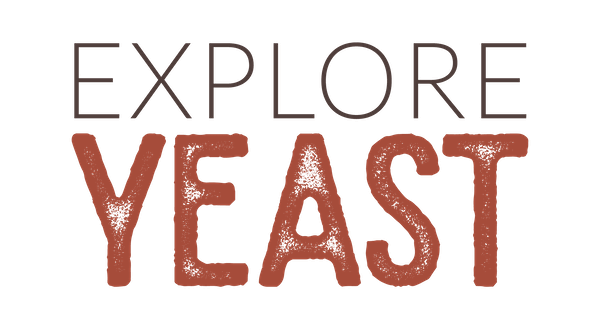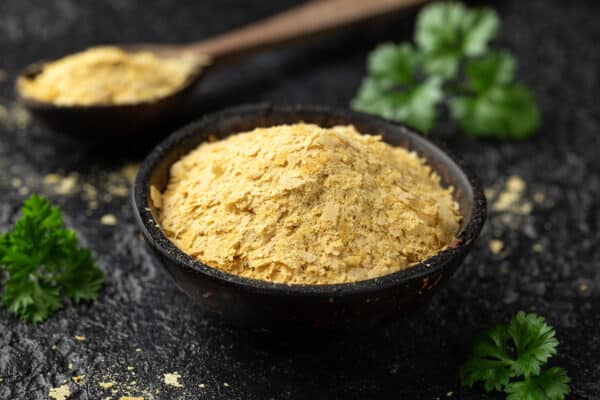More people are becoming vegetarians, vegans, and flexitarians
One-third of global consumers are limiting their meat intake or going dairy-free. Because vegan and vegetarian options are becoming more and more popular(1), but also because meat and processed meat products have seen their prices rise.
A worldwide survey conducted by Rakuten in 2021 found that 81% of consumers had tried plant-based milk, 48% had tried other non-dairy alternatives, 44% had tried vegan meat alternatives and 25% had tried a vegan egg replacement.(2)
Furthermore, Google searches for “vegan food near me” experienced a more than 5,000% increase in 2021.(3)
This all indicates that, in general, people are becoming more interested in plant-based food alternatives.
The National Science Foundation (NSF) in a 2021 global survey found that 88% of food industry experts said that they believe demand for plant-based products to increase. 74% indicated that they thought consumers choose plant-based products for a healthier lifestyle and 60% thought it’s to be more environmentally friendly.(4)
Given the increasing number of vegan, vegetarian, and flexitarian consumers worldwide let’s look at how yeast can support this trend and what makes yeast products ideal for those looking for a healthier and more sustainable type of lifestyle.
Why is yeast vegetarian and vegan?
Yeast and its products are inherently vegetarian and vegan. Yeast is a natural living microorganism from the same family, as all the other wonderful fungi you probably enjoy eating like mushrooms.
As an ingredient derived from fermentation, yeast and various yeast products such as nutritional yeast and yeast extracts are vegetarian and vegan as they do not contain any types of animal or dairy products.
Learn more about what yeast is!
Nutritional benefits of yeast
Now that you know that yeast is, in fact, suitable for vegetarian and vegan lifestyles, let’s jump into all the benefits yeast can provide!
Yeast and yeast products offer valuable fibers including yeast β-glucans (dietary fiber), vitamins, minerals, and most importantly animal-free protein!
Yeast is a natural-origin ingredient that’s made by the simple process of fermentation, without extensive processing. It comprises a complete protein containing essential amino acids, with a balanced amino acid profile with high Branched-Chain Amino Acids (BCAA) content. Today, proteins derived from yeast fermentation are available and are used in many applications such as meat and cheese substitutes to complement or replace proteins derived from soy, peas or potatoes for example.
Yeast can therefore be very valuable for vegetarians and vegans as it offers a particularly interesting alternative to animal protein, which is vital for health and nutrition.
Using yeast in food products for its protein content is just a new way to focus on the value of this ingredient that has been used for millennia.
Yeast protein is also gluten-free!
Find out all the health benefits of yeast!
Nutritional yeast: a vegetarian/vegan’s best friend!
Nutritional yeasts can be particularly valuable to vegetarians and vegans for nutrition and cooking!
Due to its cheesy, nutty, and umami taste nutritional yeast can be used as an ingredient to prepare dairy-free sauces or to thicken a sauce. It can also bring a golden color to the sauce. Nutritional yeast can also be sprinkled on soups and salads, allowing vegetarians and vegans to add nutritional value and flavor to nearly any meal.
Nutritional yeast contains all the same nutritional qualities of the yeast itself, however, nutritional yeasts are often fortified with numerous different types of vitamins among the most common are B-vitamins.
This fortification in essential B vitamins allows nutritional yeast to be rich in:
- vitamin B1
- vitamin B2
- vitamin B3
- vitamin B5
- vitamin B6
- vitamin B7 ou B8 (Biotin)
- vitamin B9
- vitamin B12
These B vitamins are essential for many human functions such as(5) :
- Vitamin B1 (Thiamine hydrochloride): normal function of the nervous system and normal psychological function.
- Vitamin B2 (Riboflavin): maintenance of normal vision.
- Vitamin B3-PP (Nicotinamide): maintenance of normal mucous membranes.
- Vitamin B5 (D-calcium pantothenate): normal synthesis and metabolism of vitamin D.
- Vitamin B6 (Pyridoxine hydrochloride): normal function of the immune system.
- Vitamin B7 or B8 (Biotin): maintenance of normal skin and hair, normal macronutrient metabolism.
- Vitamin B9 (folic acid): normal homocysteine metabolism.
- Vitamin B12 (Cyanocobalamin): normal homocysteine metabolism, normal functioning of the nervous system, normal psychological function.
One particular B vitamin is especially important, vitamin B12. This vitamin is primarily found in meat, dairy products, and eggs. Therefore, individuals choosing a vegan or vegetarian lifestyle, may not be getting enough of this essential vitamin, which is why nutritional yeast can play a vital role in helping to avoid any deficiencies.
Explore the wonderful world of nutritional yeast
Yeast extract: helping plant-based foods taste better!
One major complaint of people switching from an animal product-based diet to a vegetarian or vegan lifestyle is that they often complain the food lacks flavor or richness.

Yeast extracts solve this problem as they can be used for a variety of seasoning and flavor improvement needs. Yeast extract is a fermentation-derived and vegan ingredient that is made up of the components of the yeast cell: proteins, amino acids, carbohydrates, vitamins, and minerals.
Yeast extracts can be used in a wide variety of food and beverages. They can improve savory foods such as soups and broths, sauces, snacks, seasonings, ready-made meals, meat and fish analogs, and even sweet recipes such as cakes, cookies, or granola bars(6).
Yeast extract is also a major tool for food processors to reduce sugar(7), salt(8), and fat(9) without comprising flavors. It helps provide low-sugar formulations, low-fat applications, and low-sodium products that consumers enjoy. Just like herbs and spices, yeast extract can provide foods and beverages with a complete, rich, and balanced flavor profile.
Furthermore, many plant-based proteins’ taste is often characterized as earthy, beany, or starchy depending on the protein source. Whereas one of the strongest benefits of yeast extract is to neutralize the off-notes brought by vegetal proteins and avoid off-notes.
Find out more about yeast extracts, your flavor friend!
Yeast is a sustainable choice for vegetarians/vegans and all!
Many people are switching to vegetarianism or veganism for many different reasons, but one of the top reasons is sustainability and environmental impact(10). It has become clear that animal products and animal proteins are not sustainable for the future of Earth and its resources.
Yeast protein compared to animal protein is much more environmentally sustainable and it uses significantly less land than traditional animal-based protein sources. Furthermore, the production process of yeast protein does not emit as much greenhouse gases as animal proteins such as livestock, which is a major benefit to sustainability.
Learn more about yeast and sustainability
So, what can we take away from all of this?
Well, yeast is not only suitable for vegetarians and vegans, but it can have numerous benefits including nutritional advantages in terms of protein and vitamins and it can also substantially improve the taste of many different products. Additionally, yeast and yeast products are more sustainable, making them not only beneficial to human health but also to the health of our planet!




